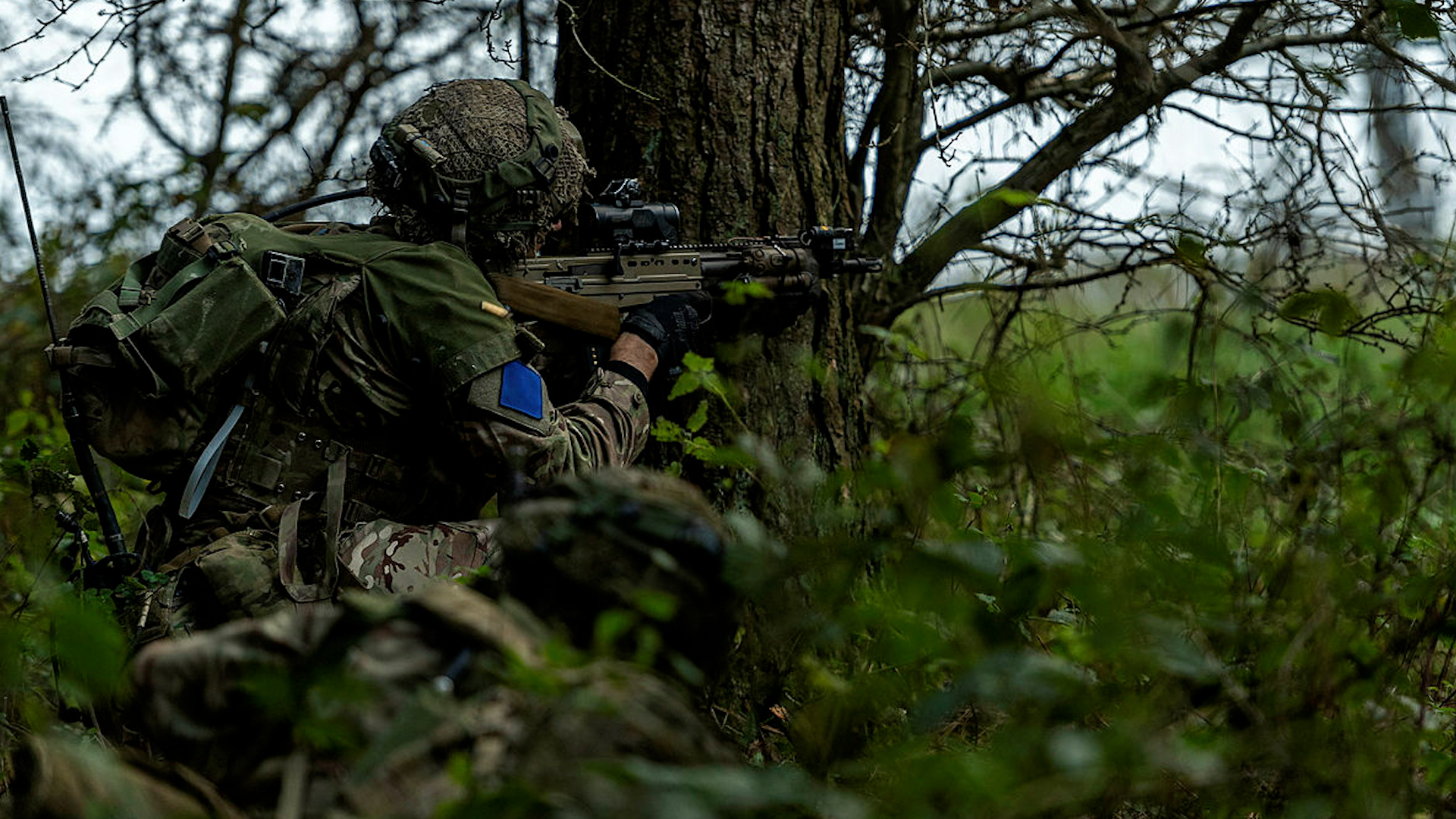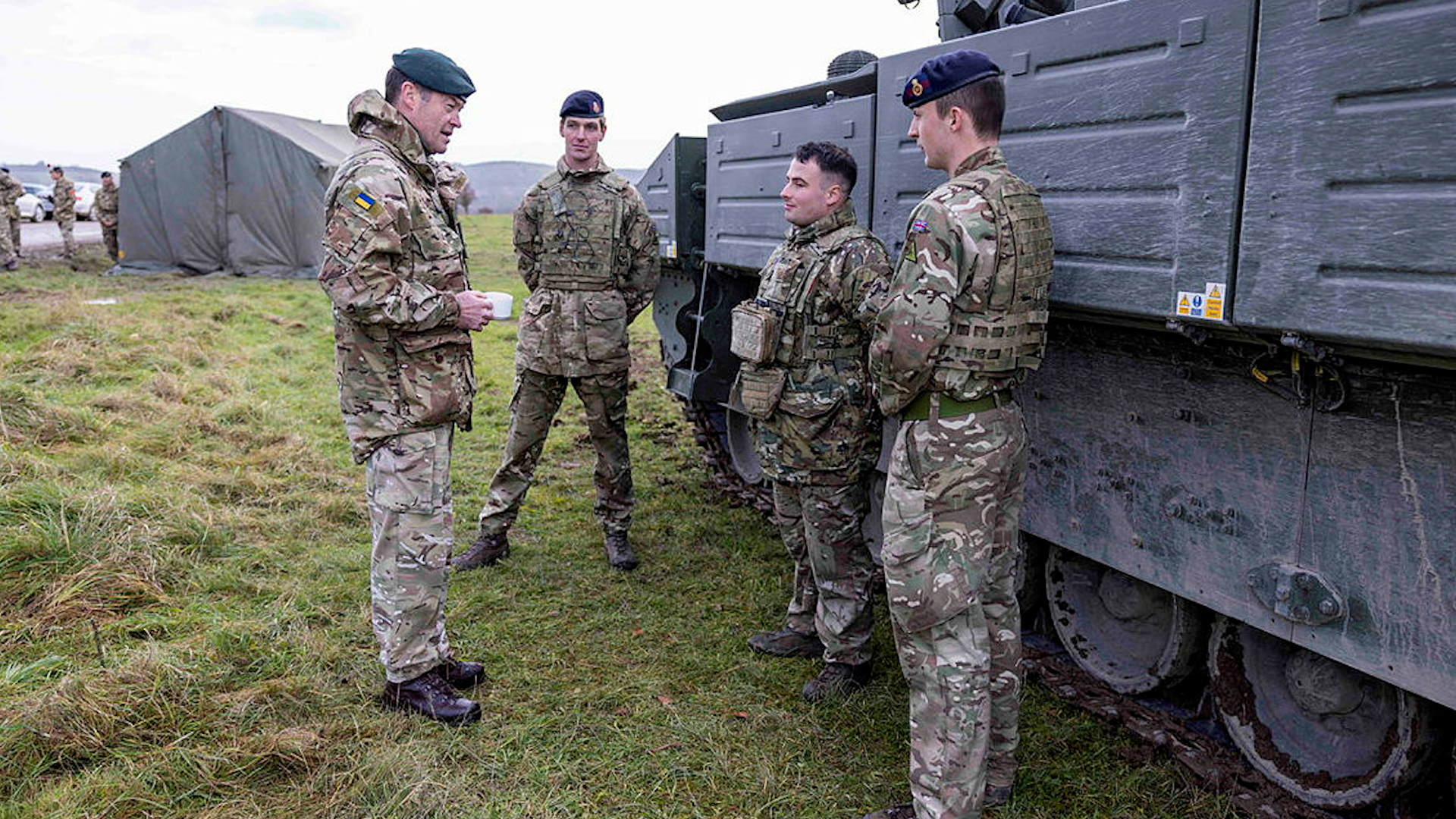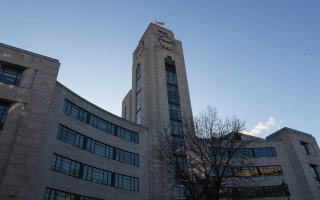
Fact check: Is military conscription really going to happen?

You have probably heard a lot of talk about conscription into the military lately, but what are the facts and could you be called up to serve?
All of the hype around the subject of conscription has come after the head of the British Army said Britain should train and equip a "citizen army" and prepare for a potential land war.
General Sir Patrick Sanders, the outgoing Chief of the General Staff, said increasing Army numbers ahead of a potential conflict would need to be a "whole-of-nation undertaking".
Gen Sanders has also previously been a vocal critic of cuts to troop numbers and military spending.
His latest comments are being widely interpreted as a potential warning that British men and women should be ready for a call-up to the Armed Forces if Nato ever goes to war with Russia.
As of October 2023, the trained and untrained strength of the UK regular forces was 139,000, while the strength of trained reserves was nearing 30,000.
But would that be enough if the country was at war?
The 2021 census in England and Wales was the first to ask people if they had previously served in the Armed Forces.
The census revealed that in England and Wales there were a total of 1.85 million veterans.
Former members of the regular Armed Forces have a liability under the Reserve Forces Act 1996.
The legislation states that veterans could be recalled if it appears that "national danger is imminent or that a great emergency has arisen; or in the event of an actual or apprehended attack on the United Kingdom".
It is these former service members who will likely be relied upon first.
What is conscription?
Conscription is a form of compulsory enrolment in a country's military. When Britain did it, it was called National Service, the United States called it the draft.
It is not voluntary and those who seek to avoid it can face stiff penalties.
The usual practice is that male citizens hit a certain age and become eligible, although exemptions are often given depending on the individual's health condition or profession.
A brief history of conscription
Pre-First World War Britain relied on an entirely volunteered Armed Forces while neighbouring European countries like France and Germany forced men into service.
The First World War changed Britain's approach and in 1916 the Military Service Act was passed.
All single men in Great Britain between 18 and 41 were eligible, with exemptions included for certain professions such as clergymen. A second Act in May of that year extended it to married men.
The Government considered extending the Act to Ireland but, given public opinion in the wake of the Easter Rising, decided against it.
After the First World War, the act was extended only until 1920. That changed in 1939 when war broke out with Germany. Britain imposed conscription on men between 18 and 41. In 1941, it widened the eligibility to include women for the first time.
Post-war, more than two million British men were conscripted into the Armed Forces, serving in places like Korea and Malaya. That ended in 1963.

Did the head of the British Army mean conscription when he mentioned national mobilisation?
Gen Sir Patrick, as outgoing Chief of the General Staff, said increasing Army numbers ahead of a potential conflict would need to be a "whole-of-nation undertaking".
However, Gen Sanders said even a mobilisation of this scale might not be enough, highlighting how the UK's allies in eastern and northern Europe were "laying the foundations for national mobilisation".
Professor Michael Clarke is a former director general of the Royal United Services Institute, a defence and security think-tank.
He told the BFBS Sitrep podcast: "Everyone misunderstands when Patrick Sanders talked about a citizen army, he was talking about a volunteer citizens army, not conscription."
Prof Clarke explained how the British Army dates back to 1660 and for only 25 of those years the country relied on conscription.
Would conscripted women have to fight on the frontline?
Since 2018, professional female soldiers in the British military have been able to serve in all of the same combat roles as their male colleagues.
It is therefore entirely possible that women could be called upon to fight on the frontline in a time of crisis.
Will there be conscription into the UK military now?
The Prime Minister's official spokesman, asked about whether Rishi Sunak could rule out conscription in future circumstances, said: "There is no suggestion of that. The Government has no intention to follow through with that.
"The British military has a proud tradition of being a voluntary force. There are no plans to change that."
The No 10 official went on to say "hypothetical scenarios" about potential future conflicts were "not helpful".
A Ministry of Defence spokesperson also said: "There is absolutely no suggestion of a return to conscription."
So, the likelihood that you may be called up to serve anytime soon, is slim.









